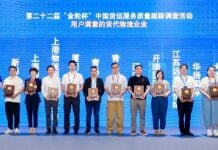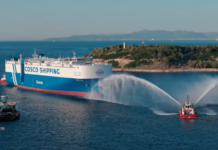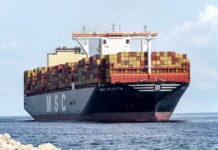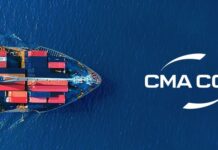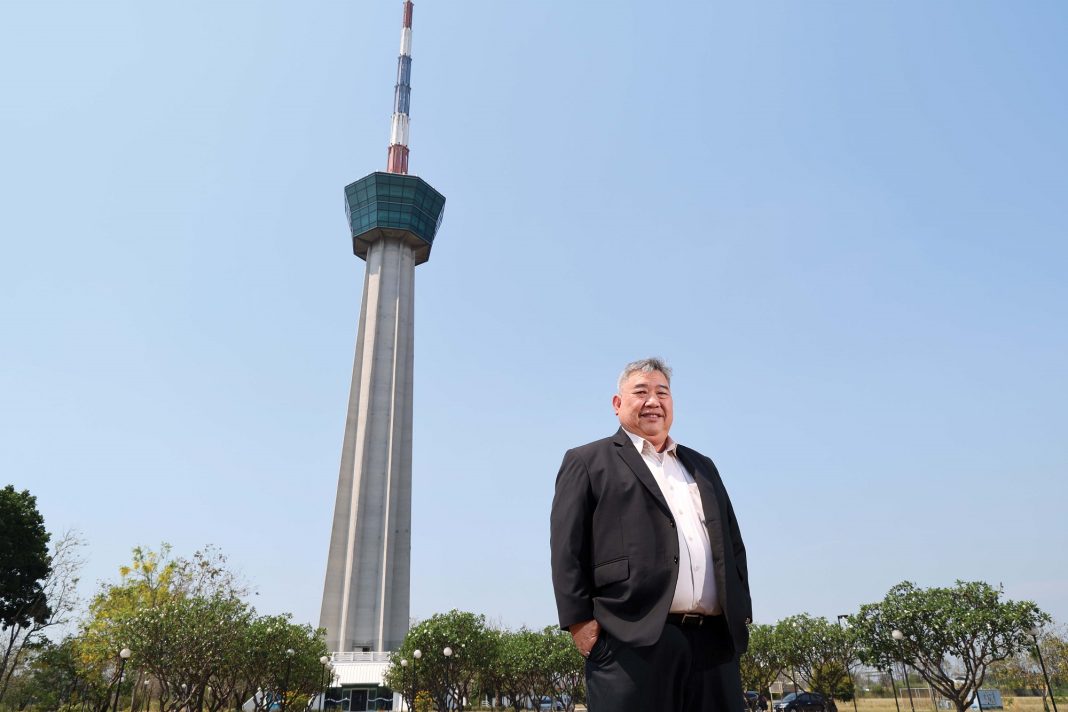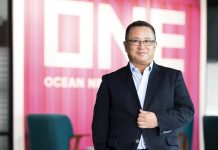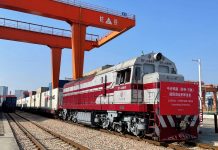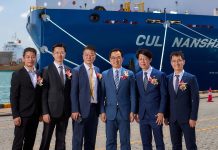‘Adaptability, open-mindedness, and continuous learning’ are the key concepts that drive Lt. Kan Maenaruji, R.T.N., Deputy Managing Director, Laem Chabang Port. Despite having over 31 years of experience in the shipping, port, and logistics industry, he has never stopped developing, is always open to new ideas, and takes on every challenge. That is how he carved his way to the top of his field.
LM Magazine was honoured to talk with Lt. Maenaruji, who shared his perspectives and concepts for working, together with his expertise in overcoming challenges. From abundant hard-earned experiences, he summed them up into thought-provoking ideas to share with the new generation in the logistics industry.
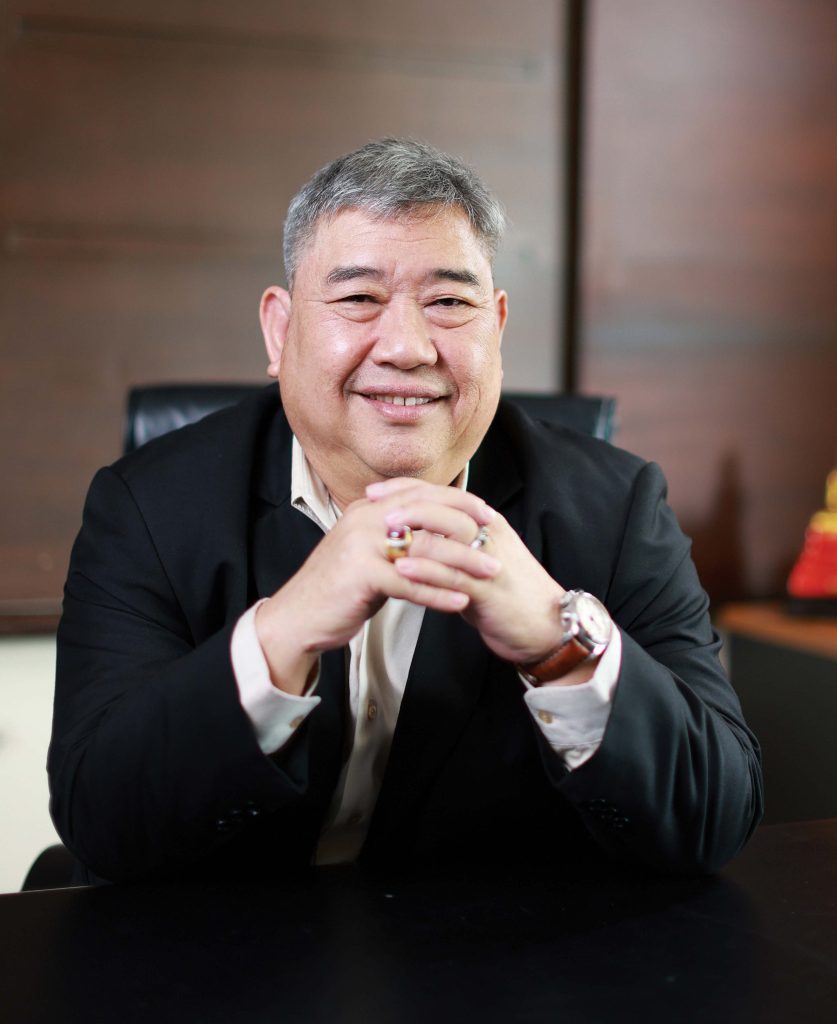
The Beginning of the Legend
Lt. Maenaruji began his maritime shipping and logistics career after graduating from the Royal Thai Naval Academy. He served as a naval officer for five years; then, he joined the Port Authority of Thailand (PAT) for the first time in 1992 as a Dredging Ship Deputy Chief Engineer.
“After 16 years working with the PAT as a ship Deputy Chief Engineer, I was promoted to Chief Engineer for the Department of Waterways under the Engineering Division of the PAT. Afterwards, I was promoted to Deputy Department Head of Waterways and, ultimately, the Department Head. Then I was relocated to Bangkok Port to work with the Management and Support Department and the Mechanical Handling Equipment Department. Finally, I was moved to Laem Chabang Port as a Deputy Managing Director,” said Lt. Maenaruji.
With every change and each new role, there were challenges and opportunities for Lt. Maenaruji to adapt to, as well as new responsibilities. “From years of service in the PAT, I saw a different spectrum of works in the organisation. Beginning with the Department of Waterways, I learnt and worked in specific functions such as dredging, maintenance, and engineering. It was a great opportunity to gain lots of experience. However, when I moved to Bangkok Port, my working style changed. I was switched to the management level, having to meet and talk with stakeholders, entrepreneurs, ship agents, shippers, importer-exporter, and all the employees. They were a challenge that I had to deal with and adapt to,” revealed said Lt. Maenaruji.
“In some roles, the experience can be of great value, such as when I joined the Laem Chabang Port and was responsible for the first part of the Laem Chabang Port Development Project Phase Three. The development included dredging, land reclamation, and landfills. My experience working on a Dredging ship came in useful, and other times, management experience from Bangkok Port helped me liaise with port operators, allowing us to understand each other better. On the contrary, I was always ready to learn open-mindedly in some parts of work that I had yet to experience. I enjoy new challenges, meeting new colleagues, and new work in all aspects, so I can get the work done smoothly with maximum efficiency,” he continued.
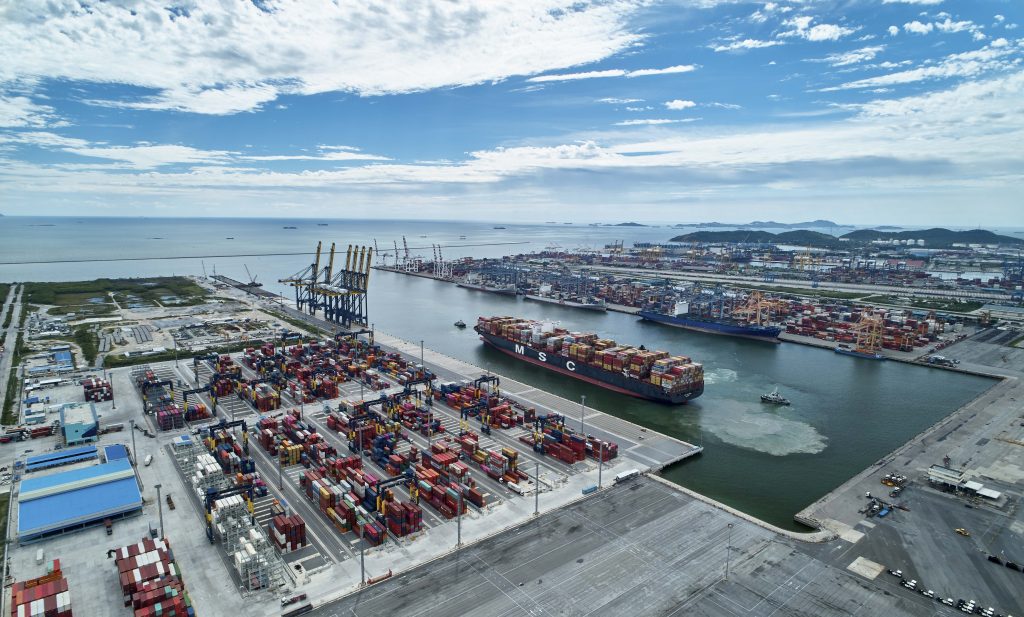
Experience Leads to Success
An open mind to constantly learn new things is an important quality that helps Lt. Maenaruji develop personal and organisational strengths. “Through 30 years of work, I have had the opportunity to face many events, each of which is equally memorable and important. It is difficult to choose just one and call it the most memorable event. Since the challenges in each period are incomparable,” said Lt. Maenaruji. “For each stage of life, we learn from our experiences differently, with a different level of knowledge and new perspectives. For this reason, for me, every challenge we face, every event that has occurred, is unique and equally important,” he added.
Lt. Maenaruji will try to understand the situation whenever a new challenge surfaces. He explained briefly from his experience, “Working on a dredging ship was often challenging regarding engine breakdown and general maintenance. The crew and I had to seek more knowledge from textbooks and seek advice from mentors trying to overcome various problems. Our methodology was to understand, question, and prove the hypothesis. On one occasion, we applied engineering calculations to prove that the ship’s dredging system was faulty. The case was submitted to the manufacturer and was admitted by them. It made us proud of the effort and proved that world-class technology sometimes has flaws.”
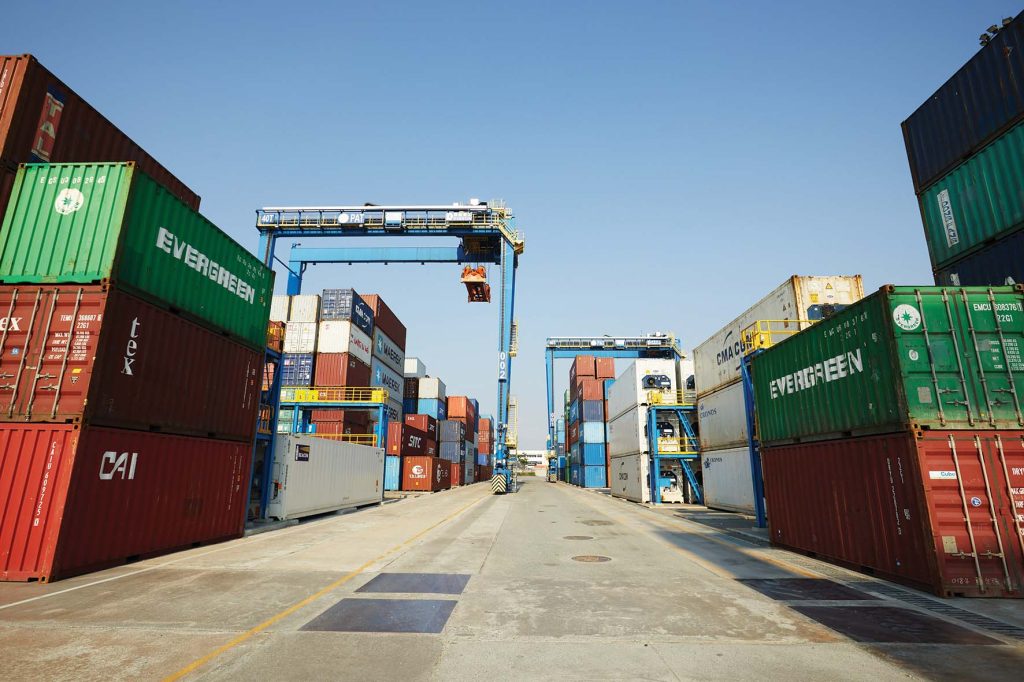
Relocated to the Bangkok Port, Lt. Maenaruji analysed and improved the emergency response plan to prevent the spread of contagious diseases. It was later deployed and helped reduce the impact of the COVID-19 outbreak.
“During my time in Bangkok Port, the emergency plan was rehearsed regularly. Emergency plans include enhancing the standardised anti-terrorism plan enforced by the United States and preventing the spread of disease from people entering and exiting the territory. At that time, the Ministry of Public Health was gravely concerned about the disease from people entering and leaving the country. Responding to the concern, we organised a rehearsal where I noticed a loophole in the risk of disease transmission from allowing at-risk patients into the port area. Therefore, the idea was proposed that cargo ships suspected of having patients on board should wait outside; not be allowed to enter the Chao Phraya River. Such a suggestion made our plan more concise in preventing disease transmission. As a result, the Ministry of Public Health was awarded due to the plan that year. The plan was implemented at the outbreak of COVID-19 and helped us to be less affected by the spread of the disease compared to other shipping industries.”
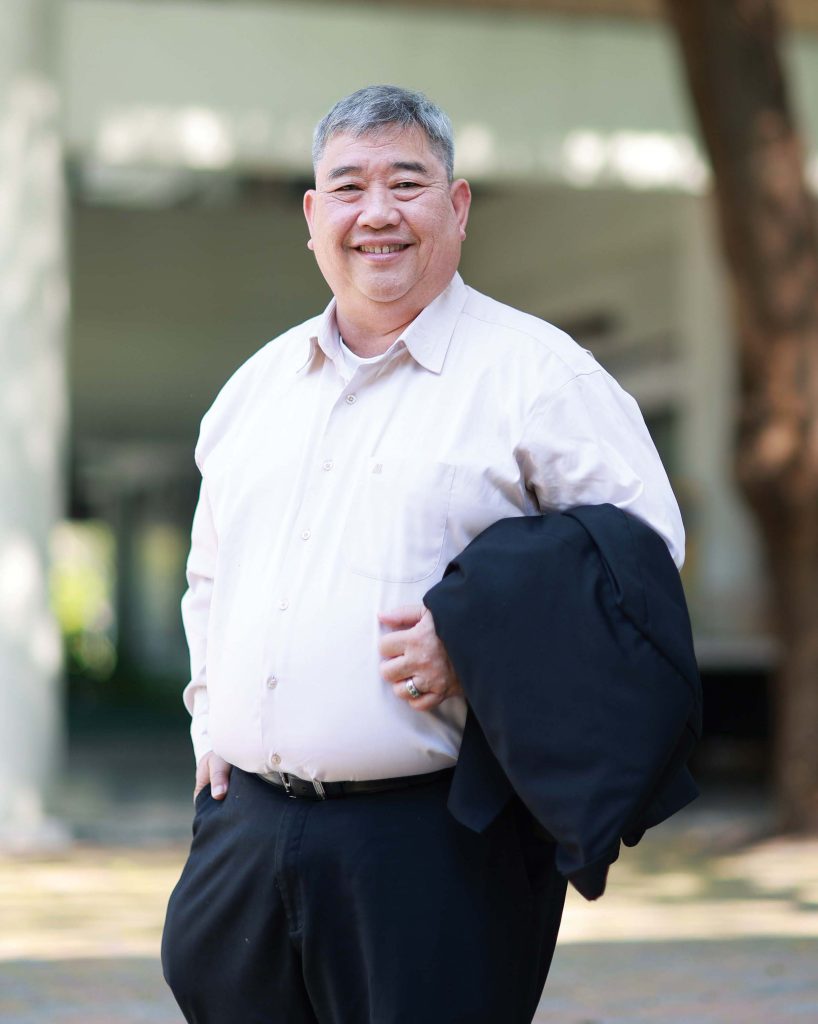
At Laem Chabang Port, Lt. Maenaruji took on new roles and responsibilities, including analysis of sectors that can help improve, promote, upgrade, and increase the port’s competitiveness. He said: “Working at Laem Chabang Port, I think the main challenge involves sourcing modern tools that align with the future direction. As an international port, we must work following international laws and standards. Laem Chabang Port still lacks equipment such as patrol boats to deal with events such as oil spills, accidents, or contagious diseases. Having the right equipment will help prevent sabotage and cargo abuse. In addition, it can assist in emergencies such as transporting patients from the docking of tourist boats, reduces the risk of spreading disease, and make us realise the capability to operate and deal with various accidents inside the harbour better.”
Look Deeper, Closer and Wider for Brighter Future
After 31 years of work, Lt. Maenaruji has seen continuous changes and developments in the port industry. He stated that the part that is developing most rapidly is technology. For this reason, he believes it is crucial for Thai organisations to keep pace with the technology, which will allow port operations to be comparable to the major world-class ports of neighbouring countries. “Technology has changed a lot. As port personnel, we have to adapt to keep up with technology if we are to compete with foreign countries. We also need to adjust our perspectives and ideas, including deepening the understanding of the transportation process regarding the product price mechanism, transportation costs, limitations, and other problems. That will allow us to develop even further,” said Lt. Maenaruji.
He continued, “Laem Chabang Port has always been the number one port in the country. However, If we want to develop further, we must look at the bigger picture beyond our own country. The competition from neighbouring countries is high and more intense, especially in China. We are way behind in many dimensions and must open our minds to new things. Therefore, we need to get ready to adjust both ourselves and the organisation to always keep up with other nations.”
Lastly, Lt. Maenaruji shared his perspective and direction in the future development of Thailand’s logistics industry. “Nowadays, we still lack integration and sharing of information across sectors. If we can share information, we will be able to help each other and jointly drive Thailand’s logistics and transportation industry further. We must dare to change our perspective, be willing to learn and adapt to new information and be open-minded to new perspectives. These things will help us develop and upgrade the Thai logistics industry to compete with other countries worldwide strongly and sustainably.”
อัพเดตข่าวสารและบทความที่น่าสนใจในอุตสาหกรรมโลจิสติกส์ก่อนใคร ผ่าน Line Official Account @Logistics Mananger เพียงเพิ่มเราเป็นเพื่อน @Logistics Manager หรือคลิกที่นี่



